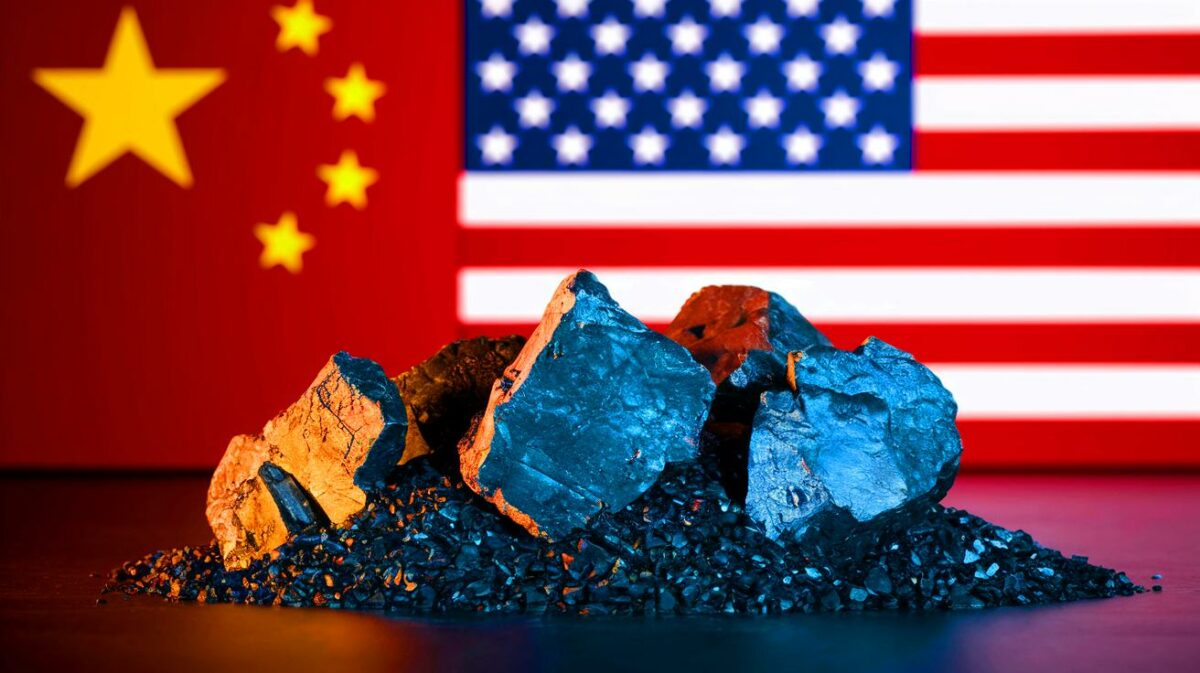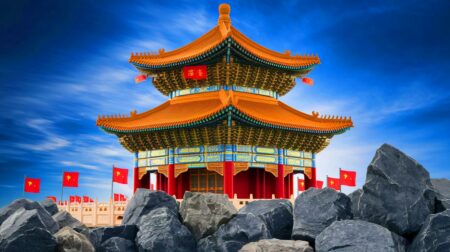| IN A NUTSHELL |
|
The ongoing trade war between the United States and China has now taken a dramatic turn, with China weaponizing its dominance in rare earth minerals. These critical materials are at the heart of modern technology, powering everything from electric vehicles to sophisticated defense systems. As the U.S. grapples with increased tariffs, China has retaliated by halting exports of these crucial elements. This move could have far-reaching consequences, disrupting global supply chains and causing prices to skyrocket. The world watches with bated breath as industries brace for the impact.
Industries Brace for Critical Material Shortages
China’s decision to suspend rare earth exports has sent shockwaves through industries heavily reliant on these elements. With China accounting for a staggering 90% of global rare earth production, the sudden freeze is causing significant disruptions. For certain heavy rare earths like dysprosium and terbium, China’s output was nearly 99% of the global supply until this halt. These elements are vital for manufacturing electric vehicle (EV) motors, drones, missiles, and numerous high-tech components.
According to industry reports, shipments came to an immediate halt following the new restrictions. Exporters are now in limbo, waiting for an undetermined period for the Ministry of Commerce to issue the necessary licenses. The estimated delay is around 60 days, but experts warn it could last longer. Companies like American Elements had anticipated the trade war, boosting inventories ahead of time. However, if the export ban persists, stockpiles could deplete, bringing production lines in sectors such as EVs and defense to a grinding halt.
China’s Ports Jammed as Exporters Await New License Approvals
The situation at Chinese ports is chaotic, with exporters facing growing confusion and delays. Cargo that hadn’t cleared customs by the deadline now sits stranded, and many companies have declared force majeure to avoid penalties for undelivered goods. The enforcement of these new restrictions is inconsistent across different ports. While some ports allow limited exports, particularly to non-U.S. destinations, others demand rigorous lab testing before any shipments can proceed.
The result has been a surge in prices for rare earth elements on the international market. For example, dysprosium oxide, a crucial metal, now fetches $204 per kilogram in Shanghai, with prices rising even faster abroad. James Litinsky, executive chairman of MP Materials, highlights the urgency of the situation, emphasizing the critical role these materials play in the future of warfare technology like drones and robotics. As the trade war escalates, the global economy faces increasing uncertainty.
Beijing’s ‘Trump’ Card in Escalating Trade War
In response to the U.S. tariffs, China is leveraging its control over rare earths as a strategic economic weapon. President Trump has defended the tariffs, asserting they are essential to addressing trade imbalances with China. However, China’s near-monopoly on rare earth production gives it a potent tool for retaliation. By halting exports, Beijing can exert significant pressure on industries worldwide.
Rumors abound that the U.S. may expand tariffs to include semiconductors and electronic devices, which could further strain relations. In Longnan, China’s rare earth hub, mining operations have quietly resumed despite environmental concerns, ensuring a steady domestic supply. Yet, the international shipments remain frozen, leaving global tech industries in a precarious position. Daniel Pickard, chair of the critical minerals advisory committee for the U.S. government, warns of severe potential impacts on the U.S. economy.
Economic Implications and Future Prospects
The halt in rare earth exports exposes the vulnerabilities in global supply chains and underscores the geopolitical tension between the U.S. and China. The ripple effects are poised to impact various sectors, from consumer electronics to advanced military systems. Companies are now scrambling to find alternative sources and strategies to mitigate the shortage.
As the situation unfolds, it raises critical questions about the future of global trade and technological advancement. Will industries manage to adapt and diversify their supply sources, or will this trade war lead to long-term setbacks in technological innovation? The answers remain uncertain, but the stakes are undeniably high. As markets react and governments strategize, the world is left wondering: how will this conflict reshape the future of international trade and technological development?
Did you like it? 4.5/5 (30)









Wow, this is intense! Is there any chance other countries can step up and produce more rare earths to counterbalance China’s hold? 🤔